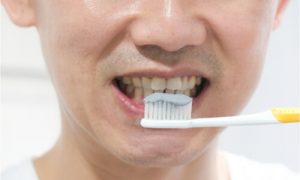
Tooth infection, headache, tooth pain, what else can you associate with your oral health? If we don’t take care of our oral health, it can lead to various dental problems. Notably, an infected tooth might cause headaches; fix it soon. Otherwise, it can lead to more severe issues in the long run. Therefore, applying immediate treatment is necessary to prevent that from happening. If you need professional help, you can contact Available Dental Care in Campbelltown.
Tooth infection and headache
 In general, an infected tooth can be in the form of a cavity, pulpitis, or an abscess. Tooth decay or cavity causes the breakdown of the teeth. Meanwhile, pulpitis is the stage wherein the infection already reached the middle of the tooth and can cause toothache.
In general, an infected tooth can be in the form of a cavity, pulpitis, or an abscess. Tooth decay or cavity causes the breakdown of the teeth. Meanwhile, pulpitis is the stage wherein the infection already reached the middle of the tooth and can cause toothache.
Furthermore, a dental abscess forms if you don’t undergo any treatment. In actuality, a dental abscess when there is a collection of pus and bacteria. The formation takes place inside the tooth or gum. If you neglect this condition, the infection can spread throughout the other parts of the body.
The primary symptom you might encounter in any oral issue is tooth pain. This pain can even radiate to other parts and can cause headaches. For this reason, we can say that an infected tooth can lead to persistent headaches if you don’t seek medical advice.
As a result of delaying your treatment or intentionally not going to your dentist, you may develop the following various complications.
- Osteomyelitis: It is the condition wherein you already developed an infection to the bone surrounding your teeth.
- Cavernous sinus thrombosis: This condition involves the infected blood vessels within the sinuses.
- Cellulitis: The skin and the fat directly underneath it gets infected as well.
- Parapharyngeal abscess: There is an abscess formation at the back of your mouth in this case.
- Sepsis: It is a severe medical condition wherein there is an intensive immune system reaction towards a blood infection.
Would you still want to reach up to this point before seeking medical advice for your dental concerns? Oral issues are not something you can take lightly because minor tooth decay can progress. In the end, tooth decay can cause significant damages to your oral health.
Treatment options for an infected tooth with headache
An infected tooth or tooth abscess is still treatable. Your dentist knows best what to do for you to get over your oral problems. Initially, they would recommend taking antibiotics to get rid of the infection, such as the following.
- Penicillin antibiotics
- Clindamycin
- Metronidazole
However, do not take any antibiotics without getting a prescription from your dentist. There might be side effects on you, so consult your dentist first. If antibiotics don’t work, the dentist might consider the following treatment options.
- Abscess drainage: Your dentist will make a tiny incision into the abscess and allow the ous to drain out. Afterward, they will wash it using a saline solution.
- Root canal treatment: The procedure involves drilling down into the tooth, removing damaged tissue (pulp), and draining the abscess from the tooth. Then, the dentist will fill in and seal the tooth’s pulp chamber and root canals. Additionally, the dentist will put a crown for additional tooth protection.
- Tooth extraction: If the abscess drainage and root canal procedure won’t work, or the tooth is unsavable, permanent extraction is necessary.
In general, you don’t have to let your infected tooth cause persistent headaches. You can consult your dentist and ask for their help to address the problem. Even though you can drink over-the-counter pain relievers, these are only temporary solutions only.
The best thing to do is address the direct cause of the pain and headache. This way, it cannot affect your daily activities anymore.
Prevention is better than cure
Overall, the excellent way for you to get rid of these oral problems is still prevention. It would be best not to let your teeth suffer from these dental issues. Preventing them from occurring is the first thing that should come into your mind. Here are the typical tips to help you achieve that.
 First and foremost, regularly brush your teeth. Do this at least twice a day using fluoride toothpaste to secure the strength of your teeth enamel. Additionally, consider using a soft-bristled toothbrush as not to harm your enamel.
First and foremost, regularly brush your teeth. Do this at least twice a day using fluoride toothpaste to secure the strength of your teeth enamel. Additionally, consider using a soft-bristled toothbrush as not to harm your enamel.- After brushing, do not rinse it immediately. It may remove the fluoride from your toothpaste.
- Additionally, use floss or interdental brushes at least once a day. It can help remove the left particles in between your teeth. This way, you can reduce the plaque buildup.
- If you care for your teeth, limit your intake of sugary foods and drinks.
- Most importantly, have regular dental visits. Dental cleaning at least twice a year will help maintain an excellent dental condition. Go to this link to read more.
After reading these, you knew these are not hard to put into practice. You only have to exert continuous efforts and keep it as your regular oral habits.
Conclusion
The infection on your tooth and headache have a relation to one another. Persistent toothache from this infection can come along with headaches. If you don’t do something about it, it will remain as it is.
Moreover, it can progress and becomes more severe. In the end, you might encounter dental problems that will require more intensive treatment procedures. Relative to these procedures are high expenses as well.
An infection is not just going to encircle within your mouth. It can even reach other parts of your body. In this case, the spread ends up becoming massive to handle. Simple procedures will no longer work for it.
Generally speaking, for any dental problem you might encounter, seek help with your Advanced Dental Care dentist in Dubbo, NSW as soon as possible. It would be best to do that sooner before it becomes too late. Otherwise, your dentist might not be able to save your teeth.

